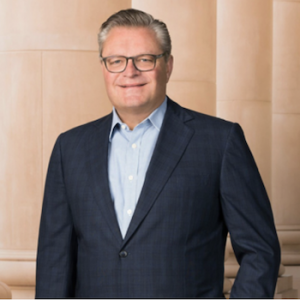 Omni Hotels & Resorts Chairman Peter Strebel noted “a level of optimism” at the recent 44th annual NYU International Hospitality Industry Investment Conference, where he shared with LODGING some of the ways Omni is forging ahead with thoughtful growth as well as continual investment in its properties and people to meet the needs of team members, the hotel organization, and the people it serves.
Omni Hotels & Resorts Chairman Peter Strebel noted “a level of optimism” at the recent 44th annual NYU International Hospitality Industry Investment Conference, where he shared with LODGING some of the ways Omni is forging ahead with thoughtful growth as well as continual investment in its properties and people to meet the needs of team members, the hotel organization, and the people it serves.
Strebel says because Omni owns and operates its hotels—there are no franchises or managed properties—it has the freedom to be “opportunistic” in how it spends its capital on all fronts. This, he says, means the company can choose to build a new hotel or reposition an existing one “not just to be profitable, but also successful from a customer satisfaction standpoint.”
This company structure, too, he explains, has also enabled Omni to create and implement a comprehensive and highly effective approach to the labor crunch from its Dallas headquarters. “We have centralized our recruiting for every position at Omni at our Dallas headquarters, where we have a team of 30 full-time professional recruiters who reach out to people on LinkedIn and other websites using a specific process to identify, screen, and hire the kind of team members we need and want.” This process, he says, starts with a phone call, during which the recruiter initially assesses the candidate for what they consider important: personality. “We’d rather go with the person that has the right personality as opposed to the skills; we can train people to do jobs.” Next, the candidate is evaluated via first a non-property interview, then an on-property interview, during which they are either hired—or not—on the spot; there is no drawn-out process. Using this approach, he says, Omni has nearly doubled its hiring capabilities. “When the properties did it themselves, it was never a full-time focus. As a company, we were hiring about 300 to 400 a week, but due to the number of open positions we had, that wasn’t enough. Now, we can hire about 600 a week.”
Strebel mentions, too, Omni’s efforts to “grow our own garden,” including the Leader in Development (LID) program for which they recruit on college campuses. “Those hired through LID—usually about 80 a year—receive eight to 12 months of training, after which they are placed in a management job at Omni,” he says. He recalls how Omni was able to quickly hire more than 400 needed team members last summer by creating a summer internship program that guaranteed them placement in LID.
According to Strebel, Omni’s structure also enables it to efficiently project and support a company-wide identity by seizing opportunities as they present and making changes on an as-needed basis. “Every dollar Omni makes gets reinvested back in the business—either to build a new hotel or renovate or reposition an existing hotel to keep up with trends established before the pandemic. Properties need to change with the times. People no longer just want a cookie-cutter experience. You must make sure you’re relevant or people will go somewhere else.”
This response to changing tastes, he says, extends to Omni’s restaurants. “Unlike chain hotels that lease out their food and beverage, we own and operate them ourselves and feel it’s a very big part of our brand.” Examples of F&B designed “to add more excitement and energy to our properties” include a Virginia-style pub with a front porch at a Richmond restaurant and better access to San Antonio’s River Walk at their property’s restaurant there.
Strebel maintains a belief that customers are willing to pay higher prices for brands that provide the amenities they care about and expect from Omni properties. “Our rates are up, but we are not yet seeing any complaints about it. Omni has always strived to be different than other brands, and we find that most customers that want Omni want Omni, a style of hotel geared to the leisure traveler looking for a certain level of amenity package not available at a regular hotel.”
Beyond burnishing Omni’s reputation and existing properties, Strebel says the company continues to grow and has four properties currently in development in both the United States and abroad.











